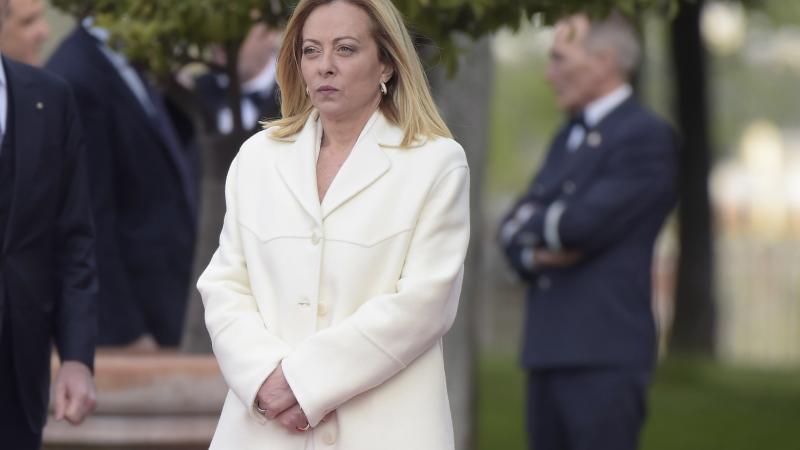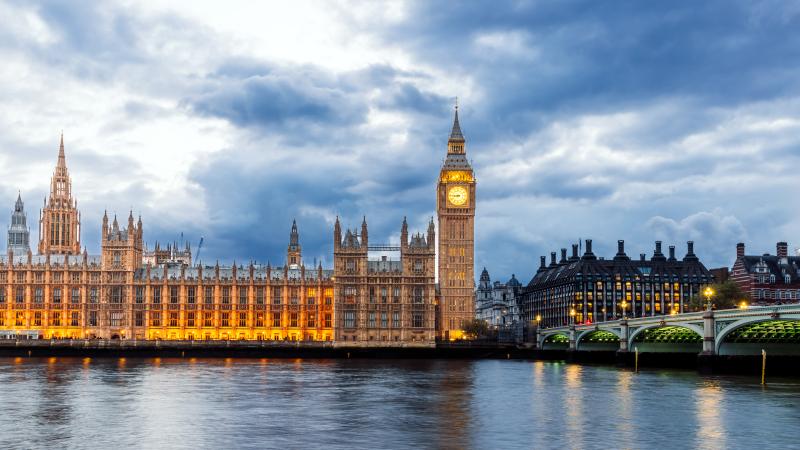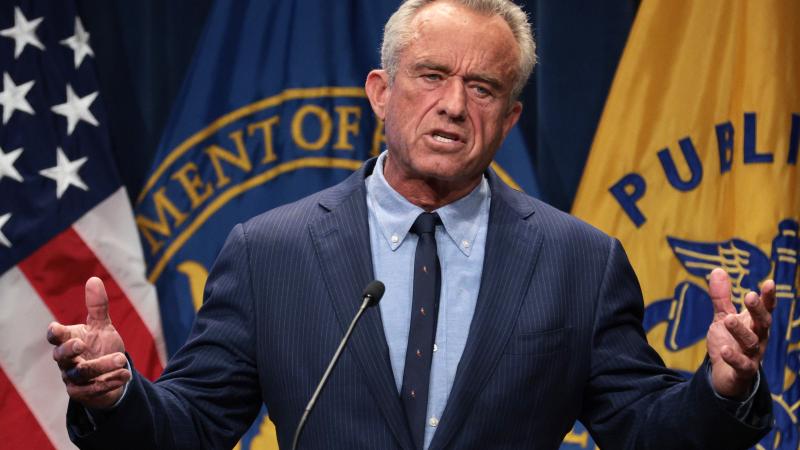Bill would empower U.K. to override Brexit agreement, protect national sovereignty
"We cannot have a situation where the very boundaries of our country could be dictated by a foreign power or international organization," British Prime Minister Boris Johnson said in Parliament Monday in defense of the Internal Market Bill.
The British government is currently trying to pass the Internal Market Bill, a law that will enable it to override aspects of the withdrawal agreement that it signed to leave the European Union in January.
Prime Minister Boris Johnson vigorously defended the new legislation on Monday in the House of Commons.
"We cannot have a situation where the very boundaries of our country could be dictated by a foreign power or international organization," Johnson declared. "No British prime minister, no government, no parliament could ever accept such an imposition."
But former Chancellor of the Exchequer Sajid Javid criticized the move. "It is not clear to me why it is necessary for the UK to break international law," he tweeted.
An argument between the EU and the U.K. over where to set the new customs border between them dragged on for years, but was thought to have been resolved in the EU withdrawal agreement — until now.
As part of the 1998 Good Friday Agreement to end the bloody, sectarian conflict in Northern Ireland, the U.K. stopped checking people crossing the border between the North and South. And with both the U.K. and the Irish Republic in the EU customs union, there was no need for goods checks, but since British voters chose to leave the EU in 2016, this has become a huge issue.
It was feared that setting up customs points on the actual border between the North and South might inflame old tensions that could rekindle the long conflict. However, Northern Ireland's situation is more complicated than that.
Irish Republicans might object if Britain reinstates the old border, but so too Unionists could be provoked by the border being moved to the Irish Sea, if it divides them from the rest of the U.K.
Or perhaps, like opening the American Embassy in Jerusalem, setting customs checks on the old border might not turn out to be such a big deal once the diplomatic dust settles
Back in 2018, Jacob Rees-Mogg, current leader of the House of Commons, argued customs checks could be done electronically with a "minimum of friction." Indeed, it was felt by many Brexiteers that the EU was exploiting this contentious issue in order to undermine the whole process.
To break the stalemate and get the EU withdrawal agreement signed, Johnson agreed to the compromise of setting the new customs border in the Irish Sea between Great Britain and Northern Ireland, with duties on goods to be paid at ports on either side.
But with Northern Ireland remaining on the EU side and in the EU's single market for goods, this would leave it subject to some of its rulings, creating a regulatory barrier between it and the rest of the U.K.
Many, including Nigel Farage pointed out the inherent difficulties with the withdrawal agreement at the time. As the U.K. comes to the end of its "transition year," when it will fully leave the EU, the enormous consequences of that agreement have become clear to all.
In the existing agreement, companies in the rest of the U.K. will have to fill out EU customs forms to trade with Northern Ireland. In addition, the British government will have to comply with EU law and request permission — which could be refused — to give state aid to businesses in the North. The new law would give ministers the right to overrule this. The stakes involved in Johnson's U-turn are high, as it involves breaking an existing international agreement.
Former British Prime Ministers John Major, Tony Blair, Gordon Brown, David Cameron and Theresa May have voiced their opposition. Even May’s former attorney general, Sir Geoffrey Cox, has threatened to vote against the new law, calling it a "unilateral abrogation of the treaty obligations."
What will be of more concern to the current British government is how its new law is received in America, and what effect it might have on the proposed bilateral trade deal between the two close allies.
The Democrats, who brokered the Good Friday Peace Accord during the Bill Clinton presidency, have stated under no circumstances would they support reimposing any kind of border between North and South. If elected president, Joe Biden could make reversing the new U.K. law a prerequisite for signing a trade deal.
Without the huge economic boost a U.S.-U.K. deal would bring, the future for Britain will be bleaker after having just suffered a staggering 20.4% drop in its GDP in the second quarter of 2020 due to the COVID lockdown measures. Last month, the Bank of England predicted that despite a recent upturn in consumer spending the nation's GDP will fall 9.5% over the year as a whole.
The nation's economic health will not have been helped either by new restrictions that make it illegal for people in England to meet in groups of more than six people, either indoors or outdoors, unless for work or education.
President Trump, however, remains a strong advocate for a U.S.-U.K. trade deal, and he is likely to be sympathetic to the prime minister's belated conclusion that British sovereignty is being threatened. Mr. Trump has consistently argued that a nation without borders is not a nation, and in this current agreement, the U.K. is not allowed a border with the EU around Northern Ireland.
Mr. Johnson will congratulate whichever candidate wins the November U.S. election, but he may be feeling less nervous on the call, if the Republicans remain in charge.














